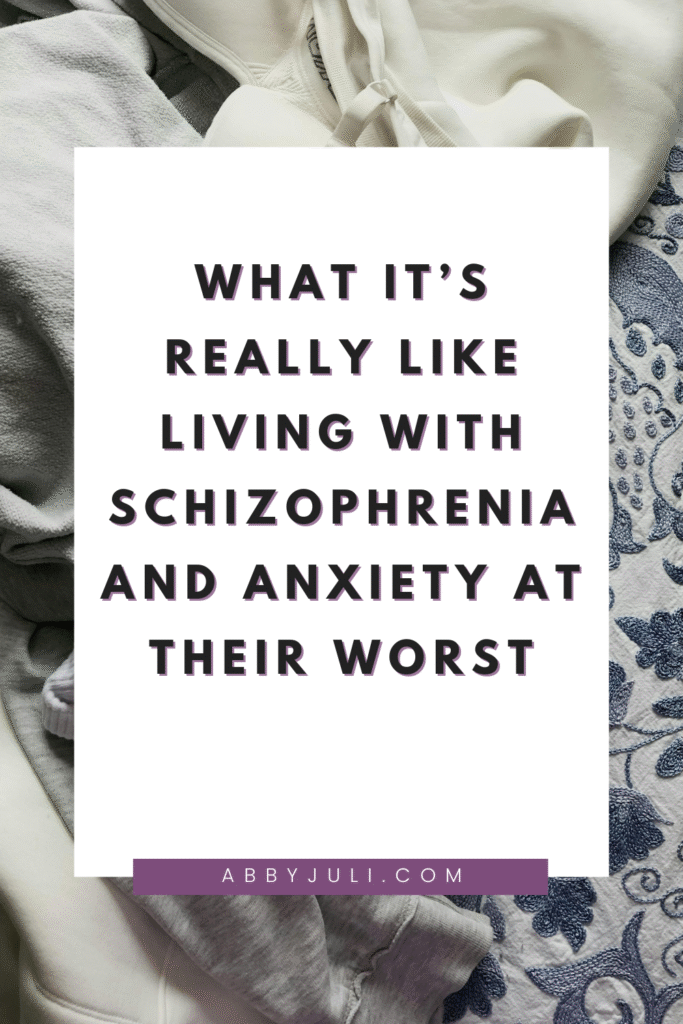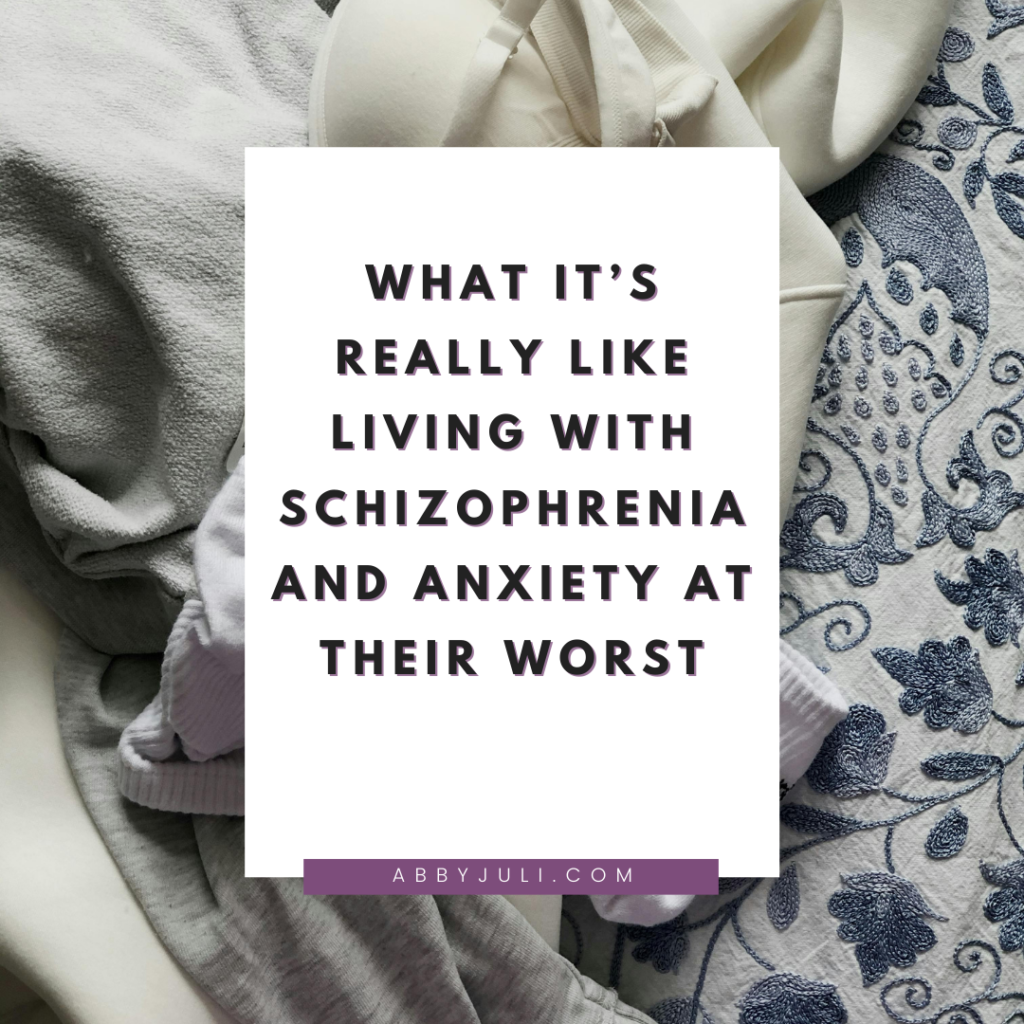
(A gentle, honest look into two conditions that affect more people than we realize)
Living with schizophrenia and anxiety isn’t just “in your head.”
It’s a daily balancing act—between your mind, your environment, your routine, and your body.
Some days are stable. Some days feel almost normal.
And other days… everything feels like too much.
Before sharing what it feels like, let’s explain these illnesses in simple terms.
What Schizophrenia Actually Is (In Simple Terms)
Schizophrenia is a chronic brain disorder, not something that makes a person dangerous or broken. It affects how you:
- think
- perceive reality
- process information
- regulate emotions
- connect with others
People with schizophrenia may experience:
• Hallucinations
Seeing, hearing, or sensing things that aren’t actually there.
• Delusions
Strong beliefs not based in reality, even with evidence.
• Disorganized Thoughts
Thoughts become tangled or difficult to communicate.
• Emotional Numbness or “Flatness”
Feeling disconnected from emotions.
• Cognitive Difficulties
Trouble with memory, focus, or organizing thoughts.
Schizophrenia isn’t an everyday crisis—it comes in waves.
But when those waves hit, they can knock you down hard.
What Anxiety Actually Is
Anxiety is your body’s danger system stuck on “high alert.”
Even when nothing is wrong, the brain reacts like disaster is coming.
Symptoms can include:
- racing thoughts
- tight chest
- panic attacks
- shaking
- nausea
- extreme worry
- intrusive thoughts
- spiraling “what if” scenarios
Where anxiety says, “You’re in danger,”
schizophrenia can say, “This danger is real.”
Together, they create a storm that is incredibly difficult to navigate.
My Story: What It Was Like When My Illness Was at Its Worst
People often see the “high-functioning” version of me—the version who can work, create, talk, write, and keep going even on the hard days.
But being high-functioning doesn’t mean I don’t break.
It doesn’t mean my mental health hasn’t brought me to my knees.
Because it has.
There was a period when my symptoms were at their absolute worst, and it nearly destroyed me.
I Became Afraid to Sleep in My Own Bed
Nighttime should’ve been a break from reality, a moment of peace.
Instead, it became the scariest part of my day.
I was terrified to sleep in my own bed.
Every time I tried, my thoughts would get louder, darker, more distorted.
I Went Weeks With Little to No Sleep
I was running on empty—days and days of barely sleeping, sometimes not sleeping at all.
And when you live with schizophrenia and anxiety, no sleep is gasoline on a wildfire.
Sleep is usually my escape.
My reset button.
But what happens when you can’t escape?
What happens when your mind won’t shut off for days?
Everything gets worse.
The Voices Become More Prominent
The longer I stay awake, the louder the hallucinations get.
My inner thoughts twist themselves into something toxic and frightening.
And even though deep down I know they’re fake, my brain starts to believe them.
The most prominent voices were my parents.
Not their real voices—but distorted versions my mind created.
They sounded disappointed. Angry. Critical.
Saying things they would never say in real life.
But in the moment… it felt real.
It Was a Battle Just to Stay Grounded
When you haven’t slept in days, and your mind is blurring reality with fear, everything feels threatening—your room, the dark, your own thoughts.
Those were some of the hardest nights of my life.
And I share this not for pity, but for understanding.
Because so many people live through moments like this silently, ashamed, or afraid to talk about it.
But these experiences don’t make anyone weak.
They make us survivors.
What It Feels Like When Both Illnesses Are at Their Worst
Here’s the part people don’t often see:
1. Your Mind Feels Like It’s Working Against You
Anxiety fuels fear.
Schizophrenia distorts perception.
Together, they create a storm inside your head that’s exhausting to fight.
2. You Question Everything
“Is this real?”
“Is this a symptom?”
“Is this fear or something else?”
The self-doubt is relentless.
3. Your Body Feels Like It’s in Survival Mode
Your heart races.
Your senses sharpen.
You feel unsafe even in a safe place.
4. Reality Feels Foggy or Glitched
It’s hard to trust your brain.
Things can feel too loud, too bright, too strange, too intense.
5. Judgment Makes Everything Worse
You fear:
- being misunderstood
- feeling like a burden
- being labeled “unstable”
- people thinking you’re dangerous
So you hide your symptoms, even when you’re suffering.
6. High Functioning Doesn’t Mean “Fine”
People see what you can do.
They don’t see what it costs you.
What Helps (And What Healing Looks Like)
While everyone’s journey is different, things that help include:
- medication
- therapy
- sleep hygiene
- grounding exercises
- routines
- pets
- supportive people
- recognizing early warning signs
- taking rest seriously
Even little things—soft lighting, calming music, cuddling pets, quiet routines—become anchors.
A Gentle Reminder
You are not your diagnosis.
You are not your worst night.
You are not your hallucinations, your panic, or your fear.
You are someone fighting a battle most people don’t see or understand.
And you deserve:
- compassion
- support
- safety
- rest
- and most importantly—hope
Your story matters.
And sharing it helps others feel less alone.

